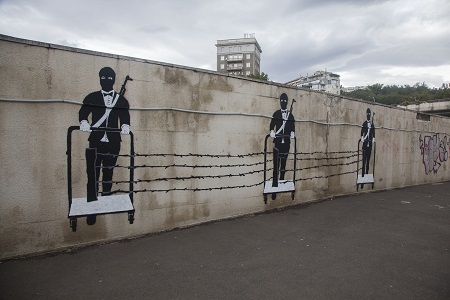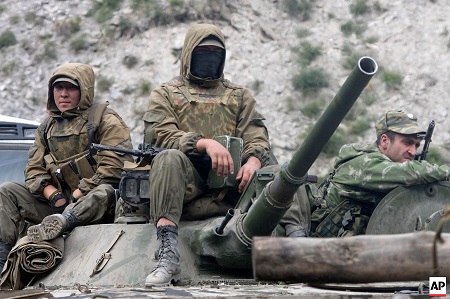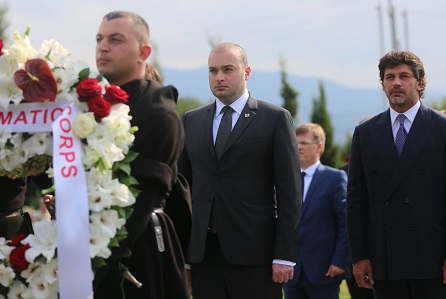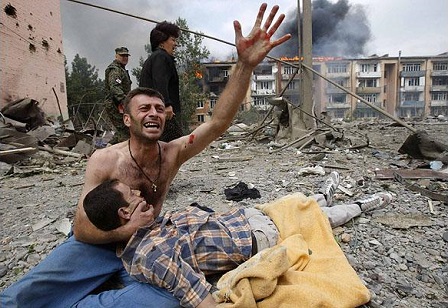Public Defender: occupants detained min. 15,000 at occupation line with Abkhazia between 2009-’17

Georgian Public Defender Nino Lomjaria say that based on Russian and breakaway Abkhaz sources around 15,000 Georgians have been illegally detained by Russia-controlled so-called border guards for ‘illegally crossing the border’ between 2009 and 2017.
The number of detainees on the occupation line of the Tskhinvali (South Ossetia) region was 1,063 in 2016-2017. Cases of deprivation of life have also occurred on the occupation lines,” Lomjaria said.
The conflicts in the 90s and 2008 affected more than half a million people. 278,103 of them became internally displaced persons. 20 percent of the territory of Georgia is occupied. These figures indicate the challenges faced by our country and the huge responsibility of the central government,” Lomjaria said in a statement made on the occasion of the 10th anniversary of the Russia-Georgia war.
Lonjaria says that a general analysis of the IDPs' rights situation shows that their main problems remain the same over the years.
58 percent of the registered IDPs are still waiting for shelter. In some facilities, IDPs have to live in difficult conditions; former collective centers have been poorly rehabilitated and repaired; the social and economic situation remains a challenge,” Lomjaria said.
Lomjaria says in order to settle the problem priority should be given to the resettlement of IDPs from the facilities that threaten their lives or health and a model focused on IDPs’ needs should be developed by the government of Georgia.
The public defender says that the rights situation of people living along the occupation lines has worsened after 2008.
The 350 km-long occupation line of the Tskhinvali region is controlled by 1,200 Russian border guards and the 145 km-long dividing line of Abkhazia is controlled by 1,500 border guards. The erection of barbed wire fences directly damaged more than 50 villages of Shida Kartli and Samegrelo-Zemo Svaneti regions on the Georgian-controlled territory,” Lomjaria said.
Lomjaria spoke about the murder cases of Giga Otkhozoria and Archil Tatunashvili in the occupied regions and mentioned the case of civil activist Tamar Mearakishvili in the occupied Akhalgori area, where she is being repressed by the de facto Tskhinvali leadership on a daily basis for her journalistic activities.
Lomjaria welcomed any initiative of the Government of Georgia aimed at protecting the rights of the population living in the occupied territories and building trust between the communities split by conflicts. She believes that to achieve this goal it is necessary to:
- Allocate additional funds to equip medical and educational institutions operating on the occupied territories, as well as to help medical and academic personnel; provide scholarship or other encouraging programs for students living in the occupied territories
- Resume funding for outpatient diagnostics within the framework of the Referral Service State Program for patients from the occupied territories, while persons having documents confirming Georgian citizenship and living in the occupied territories should not face problems while enjoying the referral program
- Develop a social assistance mechanism for persons with disabilities living in the occupied territories, as well as lonely elderly people, large families, etc.
 Tweet
Tweet  Share
Share



